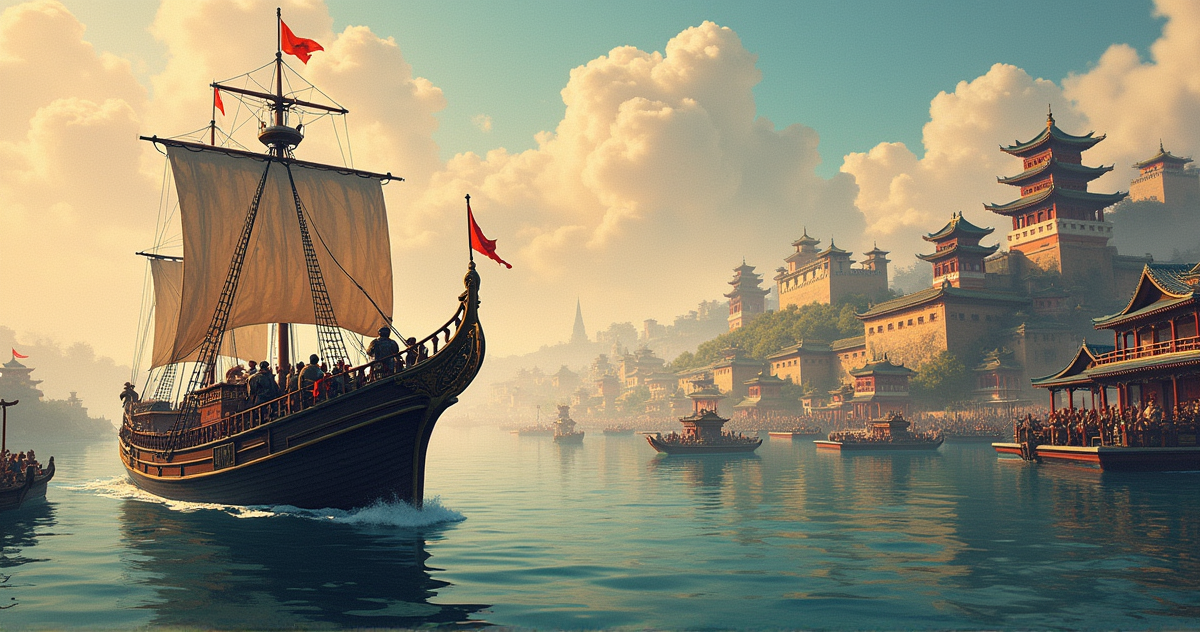When most people think about the Song Dynasty, they picture bustling cities filled with merchants, artists, and intellectuals, thriving under a regime that prioritized civilian governance over military might. I mean, who wouldn’t? It paints a fascinating image of a society that celebrated culture over conflict. However, a recent Reddit post caught my attention and made me rethink this narrative. What if the Song Dynasty’s military was more significant than we’ve been led to believe? Join me as we journey through this compelling topic over a cup of coffee, and explore how military institutions shaped this era.
The Common Narrative
To kick things off, let’s look at why the idea that the Song Dynasty was entirely focused on civilian governance exists in the first place. Historically, we see the Song Dynasty as a period marked by impressive advancements in science, technology, and arts. The poets, scholars, and inventors took center stage, while the army appeared almost as an afterthought. But what if this view is too simplistic?
Most history books highlight the Confucian ideals that ruled during the Song era, emphasizing moral governance over brute force. It’s true that the Song rulers prized civil service examination systems, promoting educated officials over warlords. This point of view is endearing and represents a noble aspect of Chinese history.
Challenging Assumptions
Here’s where things get interesting. The Reddit post I stumbled upon pointed out that this hegemony of civilian life doesn’t paint the whole picture. In fact, there’s growing evidence that the Song Dynasty had a complex and nuanced approach to military affairs. I was surprised to learn that the military played an indispensable role during this time!
Understanding Military Institutions
So, what do we know about the military might of the Song Dynasty? It all starts with the establishment of structured military institutions. The Song government created an elaborate military bureaucracy, something that wasn’t just an accessory to the civilian administration. They had a standing army, naval forces, and even specialized units for particular tasks, like defending against pirate incursions along the coast.
Even more, they developed firearm technology, which was revolutionary for its time. Remember the “fire lance”? It’s quite fascinating how these early forms of gunpowder weapons changed the way battles were fought. The Song Dynasty’s military was continually evolving and adapting, showcasing a commitment to not only existing but thriving in a world that constantly changed around them.
The Economic Factor
But why did the Song invest so heavily in military institutions? To answer this, we have to consider the economic backdrop. The Song Dynasty was a powerhouse in trade and industry, leading to a burgeoning economy. A prosperous economy needed protection, and this made military strength a necessity— not a mere afterthought.
In fact, merchants needed safe routes to transport goods. And the state had to ensure that these routes remained secure from bandits and rival factions. It’s a reminder that there’s always an economic angle in any historical context, don’t you think? More trade led to a need for more military protection, showing that the Song rulers weren’t as naïve as some narratives suggest.
Make No Mistake: Warfare Was Real
Let’s not forget, the Song Dynasty faced significant pressures from surrounding regions, especially from the Jurchens to the north. The invasions weren’t just minor skirmishes; they nearly obliterated the Song Dynasty’s grip on power during the Jin-Song Wars. This threat compelled the Song to bolster their military, creating alliances, and using diplomacy where necessary.
It’s easy to romanticize the past, putting poets and philosophers on a pedestal, but the reality is that the Song faced very real challenges that required a formidable military response.
Understanding the Defense Strategy
The military strategy of the Song wasn’t just about having an army. It involved intricate tactics and the use of intelligence gathering. The Song were innovators in the way they approached defense. They built fortifications, had a complex signaling system to communicate alarms, and even utilized spies.
Imagine the tension and urgency of needing to respond quickly to threats. Soldiers trained constantly, developing specialized skills to defend their homeland. The Song Dynasty wasn’t trying to conquer the world, but they certainly aimed to protect what mattered most to them: their people and their prosperous land.
Military and Cultural Exchange
Isn’t it cool how military and culture often intersect? During this era, we see cultural exchange along with military ventures. When you think about it, trade isn’t just about commerce; it’s about people, ideas, and yes—sometimes the military too. The Song’s naval forces helped create trade networks that spanned vast distances across Southeast Asia.
They didn’t just defend; they also engaged with foreign cultures, bringing back new ideas and technologies. This exchange enriched the Song’s cultural fabric, blending warriors and traders alike. It’s a beautiful reminder of how interconnected our world can be—today and in history.
Tying It All Together
So, what’s the takeaway from this dive into Song Dynasty military history? While we rightly celebrate the brilliance of civil governance, it’s crucial to also acknowledge the importance of the military. Without their military institutions, the thriving culture and economy wouldn’t have the same context.
As we sip our coffee, let’s celebrate both sides of the coin—civil governance and military strength. The Song Dynasty was a rich tapestry woven with threads of security and culture. By understanding both aspects, we get a fuller picture of this intriguing era.
In reflection, I would encourage you all to look deeper next time you encounter historical narratives like this. Balancing various perspectives gives us a richer understanding of the past—and perhaps a little insight into our own complex lives today.
So, what do you think? Does this change the way you see the Song Dynasty? Let’s discuss it over another cup!
